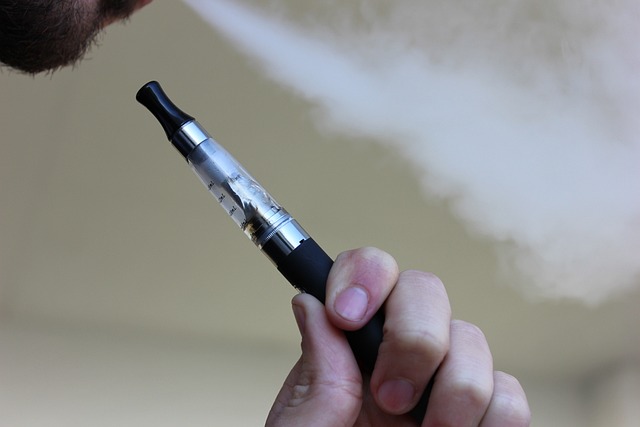Doctor Gives Warning Effects of Vaping Even Without Nicotine
While people typically assume that vaping is relatively safe, a new study has shown that even using vapes that contain no nicotine can be harmful. The study compared zero-nicotine vapes with other devices or rolled cigarettes that contain this addictive chemical. While you may be aware that vaping is not as safe as once assumed, this information may be enough to put you off the habit for good!
The Vaping Study

The University of Pennsylvania study, published in Medical and Life Sciences, investigated the effects of smoking and vaping on the body’s vascular system. According to Johns Hopkins Medicine, the vascular system consists of blood vessels that transport lymph fluid and blood throughout the human body. It’s also known as the circulatory system. The veins and arteries transport blood throughout the entire body. They deliver nutrients and oxygen to the tissues and also dispose of tissue waste. The study chose a group of 31 healthy vapers and smokers varying in age from 21 to 49 years; thereafter, two MRI tests were performed on each subject.
Details of the Study

The first MRI was performed before the participant’s smoking/vaping session and the second was performed afterward. The episodes involved vaping on an e-cigarette with nicotine, an e-cigarette without nicotine, and smoking a tobacco cigarette. The participants’ oxygen flow was measured in terms of the rate at which blood flowed and the amount that returned to the heart. The gathered data was then assessed against the baseline scans of 10 non-smokers and non-vapers ranging in age from 21 to 33 years old.
The Results of the Study

The study found that inhaling each type of smoking or vaping resulted in a substantial reduction in resting blood flow velocity in the superficial femoral artery. This artery travels throughout the thigh and delivers oxygenated blood throughout the lower body. The most severe loss in vascular function occurred after inhaling nicotine-containing e-cigarettes, followed by nicotine-free e-cigarettes.
A Reduction In Oxygen Either Way

Unfortunately, regardless of whether or not the e-cigarette contained nicotine, a significant reduction in venous oxygen saturation’ occurred. This means you continue to receive less oxygen whether you are smoking away on a more theoretically addictive vape or not. This suggests that the cardiac output is insufficient to meet tissue oxygen requirements – In essence, it isn’t very good at all.
Highlighting the Acute Effects of Vaping and Smoking

Dr Marianna Nabbout, the study’s lead author stated, “This study highlights the acute effects smoking and vaping can have on a multitude of vascular beds in the human body. If acute e-cigarette use can have an immediate effect on the arteries, long-term usage may induce vascular disease.” Therefore, whether your device contains nicotine or not – it is far safer to simply quit than risk the potential damage.
Other Health Issues Associated with Vaping

Aside from the vascular impacts, vaping has been related to a number of additional health concerns. Chemicals contained in e-cigarette vapor, such as formaldehyde and acrolein, can induce lung irritation and damage over time. Furthermore, heavy metals such as lead and nickel, which could leak from the device’s components, could build up in the body, potentially causing neurological and respiratory problems. In extreme circumstances, patients have reported serious lung damage known as EVALI (e-cigarette or vaping-associated lung injury), which can lead to persistent problems or even death.
What Happens to Your Body When You Stop Vaping

Even after years of use, quitting vaping has considerable health benefits. Within just a few days, your blood flow improves, and oxygen supply to tissues returns to normal. Over the following weeks and months, lung function begins to improve, and the body slowly repairs the damage caused. Nicotine withdrawal can be challenging; however, reduced cravings, increased energy, and a healthier heart make all the effort worthwhile. Furthermore, stopping lowers the chance of long-term effects like vascular disease, chronic respiratory problems, and cancer.
The Bottom Line on Vaping

The scientific evidence is very clear: vaping is harmful to your vascular system, even if said device is completely nicotine-free. Vaping is not a harmless habit, since it has immediate consequences on blood flow and oxygen delivery. Additionally, it has potential long-term consequences such as lung damage and cardiovascular disease. However, the good news is that stopping can counteract many of these consequences, allowing your body to heal itself. Quitting vaping today will protect your health and future, and your body will thank you in the long run!


